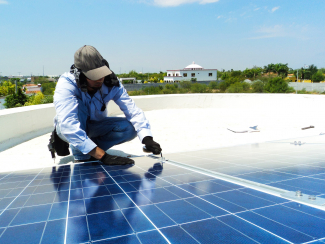Renewable energy consumption in Africa: the role of economic well-being and economic freedom
This study investigates the role of economic well-being and economic freedom as drivers of renewable energy consumption using the share of renewables in total energy consumption in Africa. To achieve this, the study employs a panel data of 32 African countries over the period 1996-2017. To deal with identification challenges associated with panel time-series data, we use the Dynamic Ordinary Least Squares econometric technique.
